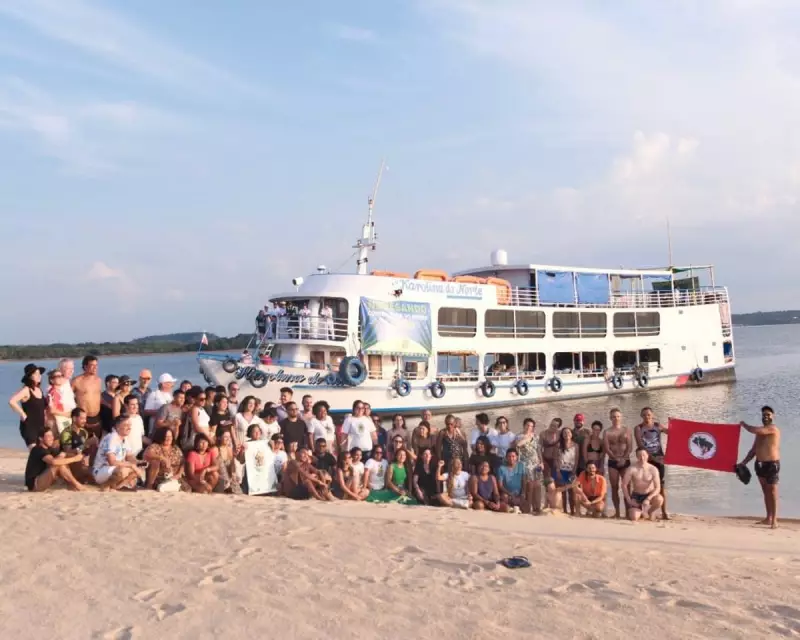
A remarkable aquatic procession is making its way toward the Brazilian city of Belém, as multiple flotillas carrying Indigenous guardians, riverine communities, and climate activists converge on the Amazonian metropolis. Their arrival creates a stunning visual spectacle and a potent symbol of grassroots pressure just days before world leaders gather for the pivotal COP30 climate negotiations.
A Meeting of Voices on the Water
The convergence, described by organisers as "a meeting of voices," represents one of the most significant mobilisations of Indigenous and traditional communities in recent years. These are the people living on the frontlines of the climate crisis, whose ancestral knowledge and territories are increasingly threatened by deforestation and extreme weather.
Among the vessels is the 'Soam Giraldo,' a boat carrying representatives from the Brazilian Coordination of Indigenous Peoples. Their journey underscores the critical role Indigenous stewardship plays in protecting the world's remaining forests.
From River Banks to Negotiating Tables
The timing is deliberate and strategic. By arriving before the official summit begins on November 10th, the flotillas aim to set the tone for the talks and remind delegates of the real-world stakes. Their presence is a physical manifestation of the demand for climate justice and inclusion in the decision-making process.
This aquatic protest follows in the wake of similar powerful movements, such as the 'Canoas pela Amazônia' (Canoes for the Amazon) initiative, highlighting a growing trend of using traditional and symbolic means of travel to draw global attention to environmental emergencies.
The Stakes for COP30
All eyes are on Belém as it prepares to host what many are calling a make-or-break climate summit. COP30 is viewed as a critical juncture for assessing global progress—or the lack thereof—on the Paris Agreement goals. The flotilla serves as a stark reminder that behind the complex policy debates are millies of people whose lives and livelihoods hang in the balance.
The hope among activists is that the sight of boats filled with those most affected by climate change will inject a renewed sense of urgency into the conference halls, pushing leaders toward more ambitious and equitable outcomes.





